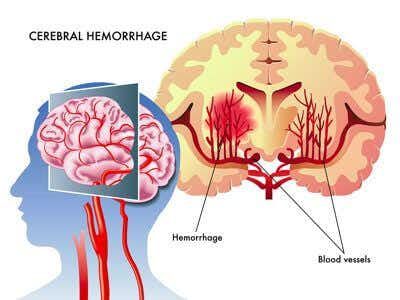
Goldilocks didn’t know beans about cholesterol, but she was an expert on porridge–not too hot, not too cold. We wish cardiologists were more willing to follow her example.
Everybody knows that when cholesterol gets really high (familial hypercholesterolemia), it increases the risk of heart attacks and strokes. But did you know that when cholesterol is too low that can also be dangerous?
What Are the Dangers of Low Cholesterol?
A study has confirmed that low cholesterol increases the risk of bleeding strokes. These events are less common than strokes caused by blood clots, but potentially even more devastating.
Dr. David L. Tirschwell reported to the American Heart Association in 1999 that people with cholesterol under 180 had twice the risk of strokes caused by bleeding into the brain as those with cholesterol counts around 230. The idea that low cholesterol levels could increase the hazard of a devastating hemorrhagic stroke doubtless came as a shock to many cardiologists and neurologists who believe you can’t have too low a golf score or cholesterol level.
This is not to suggest that high cholesterol isn’t a problem: by the time cholesterol gets up to 280, the risk of stroke caused by a blood clot doubles, compared to the risk for people with cholesterol around 230. The ideal, according to Tirschwell, is probably to keep cholesterol near 200.
That is roughly a target once established by the National Cholesterol Education Program. Dr. Tirschwell told the Associated Press, “I swear I didn’t plan it that way.”
Although Dr. Tirschwell’s research surprised many people, the finding that low cholesterol may put people at risk is not. Over 30 years ago, Japanese researchers found that men with cholesterol below 178 and women with readings lower than 190 had a higher risk of cerebral hemorrhage.
And back in 1986, American investigators reported from a long-term study in Honolulu that middle-aged men were safest when their cholesterol was between 200 and 220. Those with cholesterol below 150 had four times the risk of bleeding stroke.
Do We Need Cholesterol?
Clearly, heart disease and stroke are more complicated than cholesterol alone. Scientists think that a certain amount of cholesterol is necessary to maintain the integrity of blood vessels in the brain.
Cholesterol may also affect neurochemistry. Researchers have been puzzled by the recurrent association of low cholesterol and violent death, especially from suicide. Cholesterol that is very low may alter mood and affect behavior in ways that are not completely understood.
Cardiologists have long known that total cholesterol is not the only important risk factor for heart attack and stroke. Many people with cholesterol levels under 200 still get heart attacks.
Different Kinds of Cholesterol
Part of the story may be the different types of cholesterol. High-density lipoprotein (HDL), the “good” cholesterol, can be protective. The ratio of total cholesterol to HDL is crucial. It should ideally be 4.5 or below. Triglycerides may play a more important role than cardiologists once thought. Keeping triglycerides below 100 makes sense to us. That can happen by reducing carbohydrate intake and adding fish to the diet.
Keeping Your Heart Healthy
Anyone who would like to get beyond the cholesterol craziness might find our chapter on Heart Disease in the 524-page book Best Choices from The People’s Pharmacy quite helpful. In it we mention that physicians have known for more than three decades that there are over 240 risk factors for coronary heart disease.
Why American medicine has focused almost exclusively on cholesterol remains a mystery to us. Perhaps it has something to do with the pharmaceutical industry. No doubt you have heard the phrase, “When all you have is a hammer, everything looks like a nail.” Doctors do have powerful statin-type cholesterol-lowering drugs, but they come with a price, ie, some potentially serious side effects.
Americans have a hard time with moderation. We’ve met many people who continue to strive for lower cholesterol even when they get their number below 200. But as Goldilocks would tell you, cholesterol shouldn’t be too high or too low. Somewhere around 200 is probably just about right.

